Session 3 – Monday morning
Session: New Media: Speaking Truth to Power?

 |
New Media: Speaking Truth to Power?
Citizen journalists have made a valuable contribution in the coverage of major events of 2006: the on-going conflict in Iraq, Lebanon-Israel war, the London bombings, the US midterm elections and highlighting human rights abuses all across the world.
In the last year citizen journalists also brought to the public attention unreported stories (e.g. human rights abuses in Egypt, and the Mark Foley scandal).
Keep reading
list of 4 itemsInside the pressures facing Quebec’s billion-dollar maple syrup industry
‘Accepted in both [worlds]’: Indonesia’s Chinese Muslims prepare for Eid
Photos: Mexico, US, Canada mesmerised by rare total solar eclipse
Increasingly though, mainstream media is viewing citizen journalism not only as an opportunity but also as a competitor.
Governments are also worried about the difficulty to censor the internet and the speed with which information – accurate and inaccurate – spreads.
Does citizen journalism hold the key to the future of news reporting and political activism?
Does it challenge or complement big media?
The number of Internet bloggers, online editors, or Web-based reporters imprisoned have increased dramatically last year, can citizen journalism really be a vehicle for change in society and hold governments accountable?
Moderator – Richard Gizbert – Presenter, The Listening Post (Al Jazeera English).
Panelists
1. Ethan Zuckerman – co-founder of Global Voices Online.
2. Alaa Abd El Fatah – proactive Blogger and Journalist, Manalaa.
3. Daoud Kuttab – journalist and founder of Ammannet.net.
4. Mark LeVine – Professor of Modern Middle Eastern History, Culture and Islamic Studies in the department of History at the University of California, Irvine.
5. Jonathan Marks – director, Critical Distance BV & former director of programmes at Radio Netherlands Worldwide.
Biographies
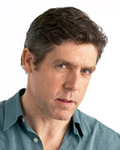 | Richard Gizbert – Presenter, The Listening Post Richard Gizbert currently works for Al Jazeera English. He has a long and eminent career as a foreign correspondent covering many parts of the globe. He spent 11 years with the American network, ABC, as a London-based foreign correspondent, covering the former Yugoslavia, Chechnya, Somalia and Rwanda. Richard also has extensive experience in the Middle East and Western Europe. Previously he worked as a correspondent-producer for CJOH-TV in Ottawa, where he produced in-depth features for Sunday Edition, the national current affairs programme. Prior to that, he was CJOH’s parliamentary correspondent for five years, responsible for national political coverage. For his reporting of a bus hostage situation on Parliament Hill, he received the National Award for Breaking News Coverage. – |
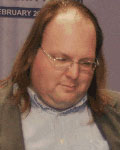 |
Ethan Zuckerman – Co-Founder, Global Voices Online |
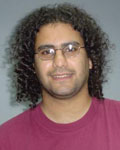 | Ala’a Abdel Fattah – blogger & journalist, Manala Alaa Abd El-Fatah is a prominent Egyptian blogger, software developer, and democracy activist. He is known for co-founding (along with wife Manal) the Egyptian blog aggregator Manalaa. He has been active in developing Arabic-language versions of important software and platforms. He organizes demonstrations and engages in protests in Egypt and is the winner of the international “Best of the Blogs” award from Reporters Without Borders. – |
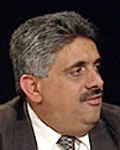 | Daoud Kuttab – Director, Institute of Modern Media – Al Quds University, Director of Amman Net Daoud Kuttab has been a journalist since 1980, writing for Al Fajr, Al Quds and Assinara. In the 1990s he established the Jerusalem Film Institute, the Institute of Modern Media at Al-Quds Univeristy, and helped establish the Arabic Media Internet Network (AMIN) a censorship-free Arab web site. In 2000 he established the Arab world’s first internet radio station AmmanNet. He is a columnist for the Jordan Times, The Jerusalem Post and the Daily Star in Lebanon, and has co produced award winning documentaries and children’s programs. He has received the CPJ Freedom of Expression Award, the IPI World Press Freedom Hero, PEN Club USA Writing Freedom Award and the Leipzig Courage in Freedom Award. – |
| Mark LeVine – Professor of History, University of California at Irvine Mark LeVine is Professor of Modern Middle Eastern History, Culture and Islamic Studies at the University of California, Irvine. Mark has authored and edited a host of books, most recently Overthrowing Geography: Jaffa, Tel Aviv and the Struggle for Palestine and Why They Don’t Hate Us: Lifting the Veil on the Axis of Evil. His publications have appeared in the Los Angeles Times, Le Monde and the Christian Science Monitor, and he has appeared as a consultant on The Newshour with Jim Lehrer, Hannity & Colmes, CNN, NPR and The O’Reilly Factor. Mark is also a respected activist, having helped organize culture jamming events in the United States, Europe and the Middle East. As a musician Mark has performed with, Mick Jagger, Chuck D, and Michael Franti. – | |
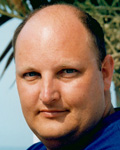 | Jonathan Marks – founder of Critical Distance & former director of programmes at Radio Netherlands worldwide Jonathan Marks has spent over 30 years practicing “cross-media”, involving interaction between people using traditional and emerging technologies. He has hosted tadio and television programmes on science and technology, later becoming director of programmes at Radio Netherlands worldwide. In 2003 started his own company, Critical Distance, that offers expertise in strategic research and development and helps organisations to train and adapt to relevant technology. He is also a founding member of Broadcasters Without Borders, a non-profit organisation that helps countries affected by natural disasters to reconstruct their local media. – |